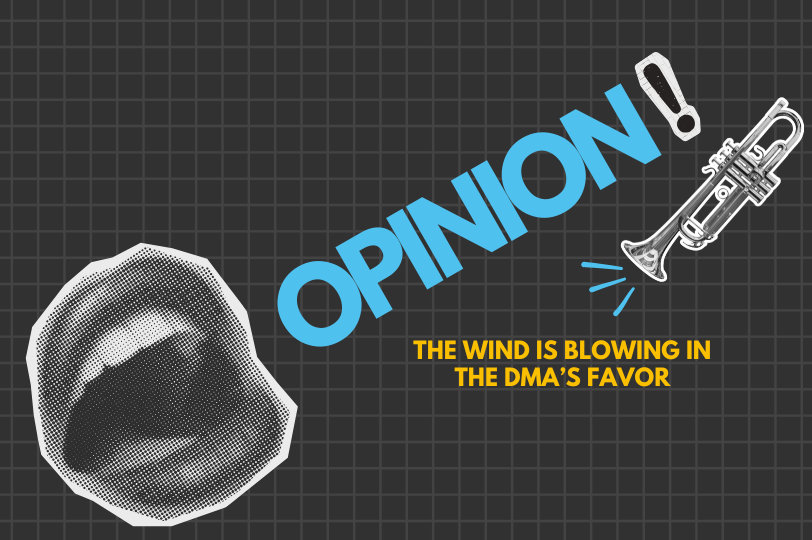DMA 2025 Brings April Showers: A Washout for Big Tech
So, how was your screentime last month? With the chaos of Trump’s tariffs and the ensuing drama of how Europe and the rest of the world were going to respond, I couldn’t tear myself away from my devices. For better or worse, we are certainly living in interesting times, and for those of you who have been following the progress of Europe’s flagship digital antitrust legislation, the Digital Markets Act (DMA 2025), via these blogs, things look like they are stepping up a gear. Designed to dismantle the tech monopolies enjoyed by the likes of Apple and Google, it’s created tension between Washington and Brussels in recent months as a result of America’s newfound protectionist stance. But with Silicon Valley firms even falling foul of anti-steering laws at home, the DMA appears to be vindicated. So, without further ado, let’s find out what went on with the legislation in April with this month’s DMA 2025 update.

DMA 2025: Fines for Apple and Meta Mean Financial Freedom
Last month’s big news arrived late. After weeks of negative press speculation concerning the outcomes of DMA-noncompliance investigations into Apple, plus Facebook and Instagram’s parent company Meta, the European Commission finally announced landmark fines on Wednesday, April 23, against the two companies.
Totalling 700 million Euros, the penalties were issued to Apple for breaching the DMA’s anti-steering rules—specifically for failing to allow App Store apps to link to third party payment options, among other gripes—and to Meta for failing to give users a fair choice over data usage.
Of course, Apple was unhappy with the ruling. “Today’s announcements are yet another example of the European Commission unfairly targeting Apple,” a representative said. Indeed, the White House was also unimpressed, calling the fines a “regulatory death spiral.” But for developers and the fintech industry, it’s good news.
As I’ve previously reported, since the DMA launched, a third of developers have been creating strategies enabling them to take advantage of the newfound ability to use third-party payment options. But as the EU’s decision highlights, many of these developers have been disappointed by the way in which Apple has continued to effectively block their ability to do so. Yet with this decision from Brussels arriving alongside news that, as a result of Epic’s successful case against the iPhone manufacturer, Apple will from now on be obliged to allow App Store apps to contain external links in the US too, the future is looking bright for developers and the fintech industry in both Europe and America.
DMA 2025: Google’s in Transatlantic Hot Water
After Apple’s noncompliance problems, April’s app economy headlines were largely dominated by news that Google is suffering antitrust woes on both sides of the Atlantic.
As the Guardian reported, a £5 billion lawsuit has been filed in the UK via a competition regulator, alleging that the search engine behemoth shuts out its rivals and overcharges businesses for adverts.
Meanwhile, in the US, a federal judge declared that Google has built an illegal monopoly via publisher ad servers and ad exchanges. A hearing will subsequently begin this month to determine remedies and penalties, which could involve Google being forced to sell part of its business, including its browser, Chrome.
Thus, while some US DMA critics are still arguing that the legislation is inherently anti-American, these legal developments should hopefully demonstrate that it isn’t just Europe that has antitrust laws… Moreover, it also suggests that EU DMA-hardliners may have a point. As the EU policy news platform Euractiv noted, a coalition of tech companies has been urging the European Commission to get tough on Google for DMA noncompliance. And with both the US and the UK leading the way in this regard, the EU could not be accused of acting outlandishly if it did.

DMA 2025 Opinion: The Wind is Blowing in the DMA’s Favor
In terms of commentary, one of the most encouraging developments I’ve noticed in the last month is the number of pro-DMA opinion pieces popping up across the mainstream. In Germany, for instance, Die Zeit mentioned it positively in relation to the humorously named trend for the “enshitification” of public life, noting how the legislation has been used successfully against Apple, while highlighting its potential in trade.
And then there was the Financial Times, which published a letter defending the DMA against the idea—now being propagated by the White House—that Europe is out to get Silicon Valley. “European regulations and antitrust laws are applied to any company operating within the EU,” wrote Mario Mariniello, a visiting professor at the College of Europe. “If [Apple, Google, Meta, and Amazon] were suddenly to lose their dominance because a formidable new market entrant emerged, they would fall outside the scope of the DMA.”
And finally, there was the US-based Center for European Policy Analysis, which made the case for the similarities between the DMA and the 1968 US Department of Justice Merger Guidelines—a law that equally caused a stir in its day.
But whether emanating from Europe or the US, many of these opinion pieces share a sense of optimism about the DMA and its equivalents elsewhere in the world. Perhaps people are finally waking up to the realities of the Big Tech monopoly machine. Or perhaps it’s just the so-called Trump effect. Whatever the case, support for the DMA’s aims appears to be growing worldwide.
Once again, thanks for reading. I’ll be back again next month with more DMA 2025 updates.
—Robert.
What to do next?
About the Author







